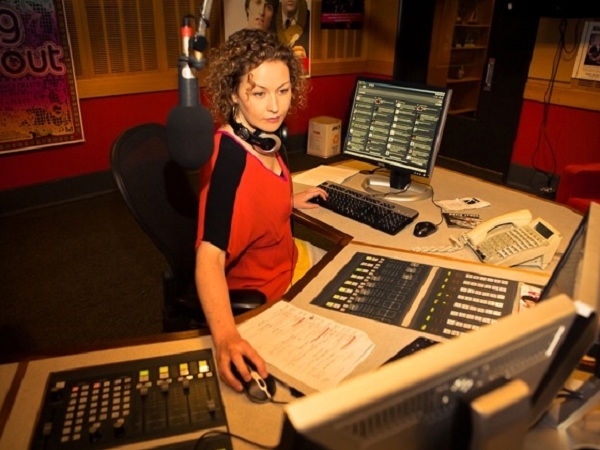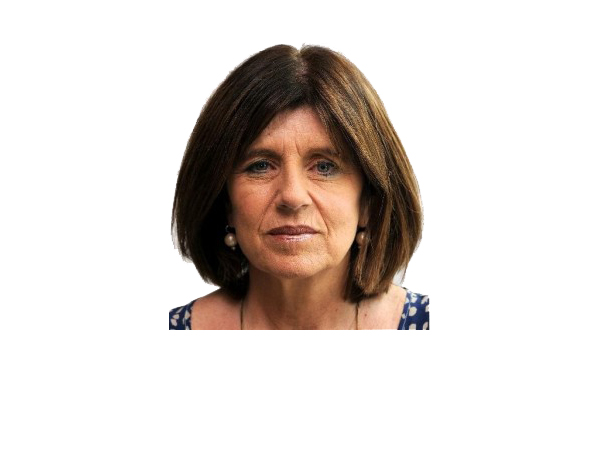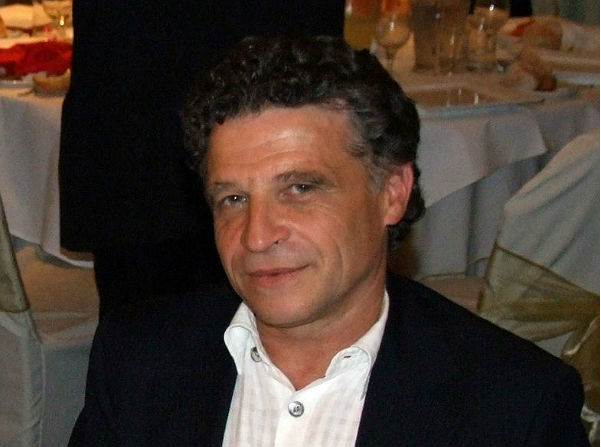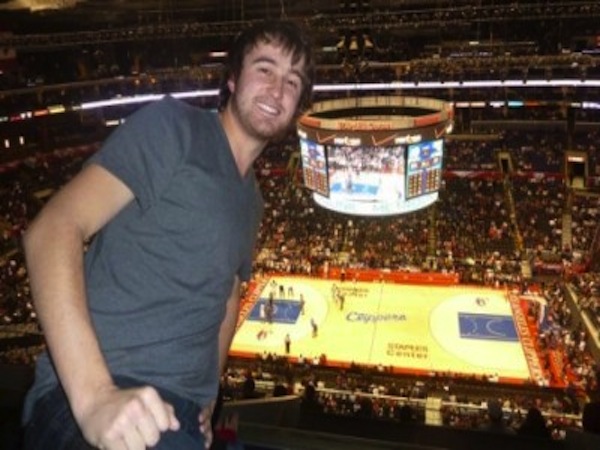How would you describe your time so far at SBS?
It’s been a varied experience. The first year is your training year. During that year you go around to the different programs in News and Current Affairs and the different bureaus to get a taste of how things work. It’s not until the year after you’re considered a fully-fledged reporter. In the three years, I’ve been surprised at what I’ve been able to pursue as a journalist.
What do you really love about your work?
I love the variety. You’ll do one story one day and a completely different story on a completely different shoot the next. I’ve also enjoyed talking to people who you would never come across in your daily life. Talking to people from a whole range of backgrounds in your job is a real privilege. I still get a kick out of it.
Do you still feel nervous before approaching people?
It’s definitely got a lot easier. When I first started it was always daunting, but you have to remind yourself that you’re doing a job. You realise it’s not that big a deal to put in a request to have a chat with the Prime Minister.
When did you first think of yourself as a journalist?
I felt more confident after the cadetship, after I’d received my training and done a few stories. The next year I was more comfortable in my skin as a journalist. You get more confident the longer you do it, and it only increases with time.
You’ve been involved with the United Nations Youth Association, Amnesty International, Future Leaders Australia and Kids Helpline. You seem to have a strong sense of social justice. Where did that come from?
Ever since primary school, those social justice issues captured my interest. I think most journalists have a strong sense of social justice. A lot of people get into the job wanting to make a difference.
When I was at uni, it seemed right to only be interested in the serious stories. But journalism covers a wide range of topics that are of interest to different people. I’ve got friends who are entertainment reporters for the Sydney Morning Herald and the Herald Sun. That’s their passion and people enjoy reading that. It’s as valid as other serious topics.
Why did you choose journalism as the best avenue for your social justice interests?
Journalism was what I really wanted to do. I’m not ruling out other industries and other vocations, but I think that for now, journalism is something that I enjoy and something that can make a small difference in society. Even if one person catches your story and thinks about it, to me, that is a really fulfilling feeling.
What has been your best experience as a journalist?
Covering World Youth Day and interviewing the Pope. The Pope is such a significant figure to me. To be up close with this figure that you see and hear about in the news all the time was a great experience and something I never anticipated.
There was no concept of being able to sit and chat with them. For that to be realised was a pretty amazing experience.
In a word, how would you describe your journalistic style?
Insightful.
You won a UN Media Peace Prize last year for your series ‘Rebuilding Aceh’. What was it like making it?
We were all aware of the scale of the disaster and the great loss of life. Initially I was very apprehensive about covering the aftermath. I was more nervous about interviewing people who had suffered such great loss. I didn’t want to come across as some upstart journalist from another country who was just there to put another story together on their suffering.
Initially I was very apprehensive about the perceived invasion of someone’s grief. But when I got to Aceh and started talking with people, I felt more comfortable about telling their story because it seemed that they were comfortable about telling it.
Did you do it on your own?
Yes. This is an example of video journalism. It worked because it wasn’t breaking news, it wasn’t during the thick of the disaster. I think video journalism allows you to take more time, you’re able to be more personal with people rather than having a crew stuck in their faces. It was something that I used my video journalism skills for.
We hear a lot about how the media is changing. What’s been your experience of this?
When I first started I was aware that new media was competing with the traditional media in terms of capturing news audiences. But I was always of the mindset that the two can work hand in hand.
I know that TV isn’t going to disappear, even though more and more people are going to the internet. I’ve always thought the two can complement each other. People will still have television sets and the different channels will always have a news bulletin. I’ve always been confident of the longevity of TV news.
What do you think are the main challenges to the practice of ethical journalism?
With the emergence of social networking sights such as Facebook, and other technologies such as YouTube and Twitter, a new ethical dilemma has emerged. How far do you go in terms of using other people’s personalised Facebook, Twitter and YouTube in your daily reporting?
I think at the moment it’s open slather. If you can get into a subject’s Facebook people will generally run with it. But I think in the near future we’ll have to make our own guidelines as to how far we use this concept. It is essentially private even though it can be accessed in the public.
Do you think there is such a thing as unbiased reporting?
Yes. I think you can be as objective as you can. It’s a journalist’s job to get all sides of the story and present them to the reader or the viewer and have them decide. I think unbiased reporting should be the given, it’s not something that should be the exception. I think in Australia we’ve still got great news objectivity which is a great thing.
What drives you?
This might sound a bit corny, but the love of the job has not only driven me to this industry but driven me to get out there and do the stuff I’ve always dreamt of doing. That’s been the motivating factor, the love of the work. As soon as that disappears I’ll know that maybe I’m done with it, but for now it’s something I still love and a feeling that hasn’t gone away.
Who’s your hero?
Kofi Annan was my hero when he was Secretary General of the UN. He was always someone that I looked up to. I was in awe of how he would handle tricky diplomatic situations, disasters and conflicts.
Equally, organisations such as the ICRC (International Committee of the Red Cross). For me it’s these people on the ground who are doing the tough jobs in the most difficult circumstances.
If you hadn’t gone into journalism, what would you have done?
I think I would look into social policy. I would have loved to have got involved with an international NGO and do grassroots aid work. That would have been the next thing I would have pursued if journalism didn’t work out.
I don’t think I’ve missed the boat on that. I’d like to think that in the future, if I felt like I wanted to do it that, I could.
Who’s your favourite journalist?
It was Jana Wendt. As a kid I saw her on 60 Minutes and I have a great amount of respect for her. She’s still my ultimate journalist.
In terms of a current journalist who I respect, I think Tony Jones is really impressive.
Do you have a life motto?
It’s always been to try my best at everything, but do it in a way that is respectful of others. You’re free to pursue your own goals and aspirations, but always treat others the way you want to be treated as well, and don’t compromise in the process.
Where do you expect to be in five years time?
I have no idea. The last few years have gone by so quickly and I was never able to predict what happened in there. In five years I hope to still be a journalist. I’d hope to have been able to go overseas and report more as a correspondent. That’s where I see myself.
What is your idea of the perfect story?
The perfect story would be one where all the different people from all the different angles of your story agree to be interviewed and to appear in your story. Half the battle is getting people to be interviewed. When you’re making those phone calls, getting them to say yes to an interview is often the hardest part. The perfect story would also have them all speaking in their own words instead of having to paraphrase, which sometimes you have to do.
Journalists are quite mistrusted in general. Do you think it’s fair?
I don’t think it’s fair, especially in Australia. I think on the whole, media reporting is objective and fair. But there have been a handful of cases where this hasn’t been the case, and those things stick in people’s minds. It’s unfortunate because I don’t think all journalists should be tarred with the same brush.
The good thing about working for a place like SBS is that people know you’re not out there to misconstrue them. I think working for an organisation that has that reputation certainly makes life a lot easier.
Isabel Robinson






